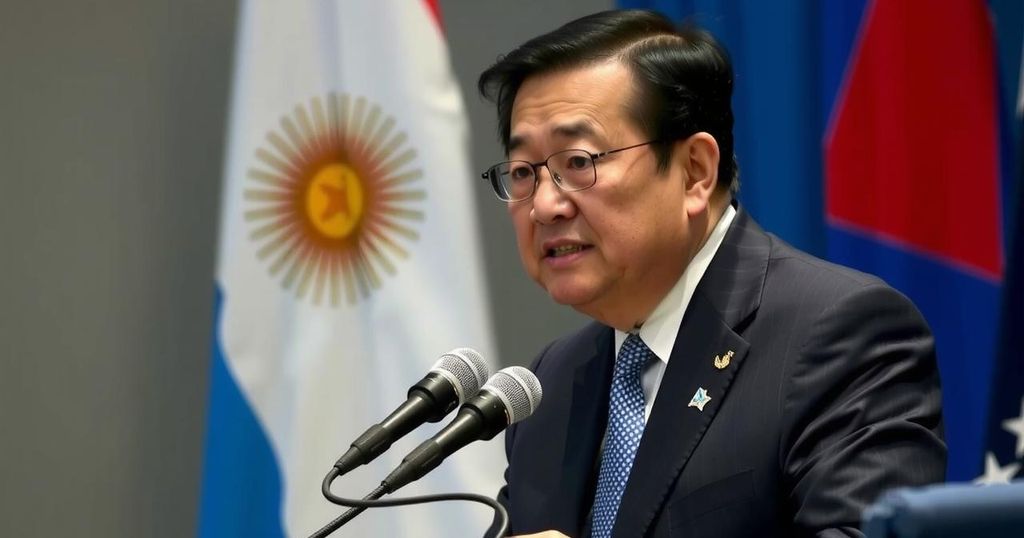Argentine President Javier Milei Dismisses Foreign Minister Following U.N. Vote on Cuba
Argentinian President Javier Milei dismissed Foreign Affairs Minister Diana Mondino after her vote in support of lifting the U.S. embargo against Cuba at the U.N. assembly. This action highlights Milei’s commitment to a pro-U.S. foreign policy amidst increasing tensions regarding leftist regimes in Latin America. Gerardo Werthein replaces Mondino as Foreign Minister.
On Wednesday, Argentinian President Javier Milei dismissed Foreign Affairs Minister Diana Mondino following her vote in favor of lifting the U.S. embargo against Cuba during a United Nations assembly. President Milei, who took office in late 2023, is known for his strong pro-American stance and has adopted a more critical posture towards leftist regimes, particularly Cuba and Venezuela. Earlier that same day, the U.N. General Assembly overwhelmingly urged the United States to terminate its long-standing sanctions on Cuba, a non-binding resolution that received opposition primarily from the U.S. and Israel. Milei, aligning with pro-U.S. sentiments, expressed irritation at Mondino’s decision to support the resolution and publicly shared a post commending another politician for not siding with what he characterized as “dictators.” Gerardo Werthein, the Argentine Ambassador to the United States, has been appointed as Mondino’s successor as Foreign Minister, as announced by the presidential spokesperson, Manuel Adorni. Diana Mondino, one of the first cabinet members appointed by Milei, had been instrumental in maintaining diplomatic relations with global partners despite President Milei’s provocative remarks regarding other nations, including Brazil and China. Reports indicate that during a lunch meeting, President Milei received a call from Werthein, who sought clarification regarding Argentina’s recent vote supporting the lifting of the embargo against Cuba, an inquiry that deeply unsettled the right-wing leader. Earlier in the year, Argentina’s state energy company YPF had declared that it would cease providing fuel to Cubana, the Cuban airline, resulting in the suspension of a critical route between Buenos Aires and Havana for nearly four decades. At that time, the Cuban foreign ministry pointed to the U.S. embargo as a justification for Argentina’s actions.
The political dynamics surrounding Argentina’s foreign policy have shifted significantly under President Javier Milei’s administration, particularly concerning relationships with leftist countries. Historically, the U.S. embargo against Cuba has been a point of contention in international relations, influencing not only U.S. foreign policy but also affecting countries like Argentina that engage with Cuba and Venezuela. President Milei’s recent actions reflect a pivot towards closer alignment with U.S. interests and a distancing from nations he critiques as authoritarian, thus re-establishing Argentina’s diplomatic stance on the global stage. The U.N. General Assembly’s decision to appeal for the lifting of sanctions demonstrates a notable divergence from Milei’s political stance, inciting repercussions within his administration.
In summary, President Javier Milei’s decision to dismiss Foreign Affairs Minister Diana Mondino underscores a clear ideological commitment to aligning Argentina’s foreign policy with U.S. interests, particularly regarding Cuba. This incident reveals the challenges he faces within his administration, as well as the broader implications of international relations shaped by contrasting political ideologies. The appointment of Gerardo Werthein as the new Foreign Minister signals a hope to restore coherence in Argentina’s diplomatic engagements following the backlash from the recent U.N. vote.
Original Source: www.hindustantimes.com




Post Comment